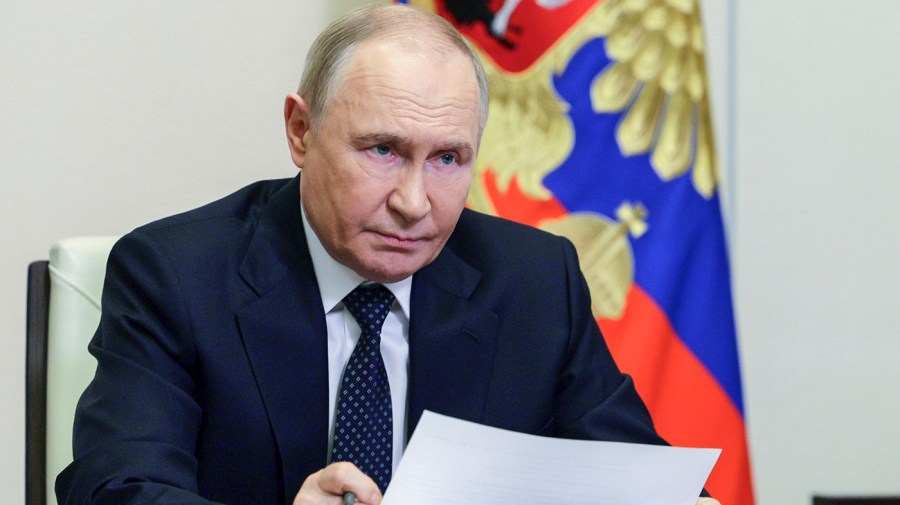Russia no longer bound by self-imposed freeze on intermediate-range missiles: Kremlin

Russia announced on Monday that it will no longer be bound by a self-imposed restriction on the deployment of short- and medium-range nuclear missiles, pointing to efforts by the U.S. and its allies to develop and deploy similar weapons systems in Europe and Asia.
“Since our repeated warnings in this regard have been ignored and the situation is developing along the path of the actual emplacement of the US-made ground-launched INF-range missiles in Europe and the Asia-Pacific, the Russian Foreign Ministry has to state that the conditions for maintaining a unilateral moratorium on the deployment of similar weapons have ceased to exist,” Russian Foreign Ministry said in a lengthy statement.
“The Ministry is authorized to declare that the Russian Federation no longer considers itself bound by the relevant previously adopted self-restrictions,” the ministry added.
Russia imposed the moratorium after the U.S. backed out of the 1987 Intermediate-Range Nuclear Forces Treaty (INF) in 2019, accusing Moscow of breaching the agreement, which barred both military powers from deploying intermediate-range missiles that have a range of between 310 to 3,400 miles.
The Foreign Ministry did not say when or where Russia may deploy the weapons.
“Decisions on the specific parameters of response measures will be made by the leadership of the Russian Federation based on interagency analysis with regard to the scope of the deployment of the US and other Western ground-launched INF-range missiles, as well as to the overall evolution in the area of international security and strategic stability,” the statement said.
The announcement came just days after President Trump said the U.S. military was moving two nuclear submarines closer to Russia in response to “highly provocative statements” made by Dmitry Medvedev, the former Russian president who is the deputy chairman of Russia’s Security Council.
Medvedev has been highly critical of U.S. foreign policy and is known for provocative and saber-rattling threats toward Washington, but is seen as having little decision-making power in the government.
Russia’s move also comes after Trump shortened the deadline for Mowcow to reach a ceasefire with Ukraine and get on a path toward a potential peace agreement.
Trump, who has called for the end of the war in Eastern Europe that has raged for well over nearly three-and-half years, spoke with Ukrainian President Volodymyr Zelensky on Tuesday, exchanging assessments of the situation on the ground, going over potential sanctions against Russia and joint efforts by European nations to supply Ukraine with more weapons.
“We also discussed our bilateral defense cooperation with America. The draft agreement on drones has already been prepared by the Ukrainian side, we are ready to discuss it in detail and conclude it. One of the strongest agreements this could be,” Zelesnky said in a Tuesday post on the social media platform X.
Trump’s special envoy Steve Witkoff is expected to travel to Russia this week for what the president said was the Kremlin’s “last chance” to reach a peace deal before Washington’s sanctions kick into place.
Trump said Witkoff “may be going” to Russia on Wednesday or Thursday.